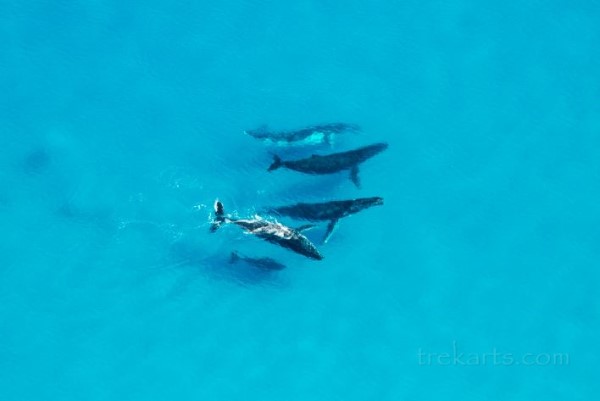Whale season wrap up 2018
Each year over 30,000 humpback whales migrate past our beaches on their annual migration to the warmer waters of Hervey Bay and beyond.
The number of whales migrating have been steadily increasing in recent years, which has also seen an increase in the number of stranded and dead animals on the beaches of the East Coast.
In preparation for the upcoming whale season, the Department of Environment and Science (DES), the responsible agency for all marine strandings, organised a training event on the Sunshine Coast to increase the capacity of not only council but also interested community members to assist in responding to these events.
A total of 70 people attended the day with representatives from Gold Coast City Council, Noosa Council and Moreton Bay Regional Council joining DES staff, Sunshine Coast Council, Coolum and North Shore Coast Care and TurtleCare volunteers to learn towing and rescue techniques from the Sea World Marine Animal Rescue team.
This training exercise was a great way to establish a communication network throughout the South East Queensland marine stranding community and proved a valuable resource as council faced its biggest year to date for whale stranding’s.
This year council responded to four stranding events, two more than last year. The first was in August with a deceased baby humpback washing up at Alexandra Headland. DES requested tissue samples for genetic analysis and volunteers from Coolum and North Shore Coast assisted in this request. The small animal was removed from the beach using an excavator and was taken to Caloundra landfill.
During October and early November, council responded to three separate adult humpback whale carcasses. Working closely with DES, council was able to get approval to tow the carcasses offshore before they could become stranded on shore. Unfortunately with the first whale on October 24 at Third Bay in Coolum, the winds and tides pushed the carcass onto the rocks minutes before the contractor could reach it. Despite several attempts to attach a rope to the carcass that evening, the attempt was abandoned due to unsafe conditions and declining light.
In the early hours of the next morning, with the help of the incoming high tide, the carcass was re-floated and towed 10 nautical miles to sea. As it was towed, it provided a welcome food source to sharks, sea eagles and fish. A portion of the jaw remained on the rocks for several weeks, the piece was extremely large and given the access to the location proved to be somewhat of a safety risk to retrieve. It provided a great food resource to the local ospreys while it remained on the rocks.
Sharks feeding on whale carcass
A few days later, a second whale carcass, bigger than the first was seen floating off Point Cartwright. Lifeguards reported the carcass to DES and council late on a Saturday evening and council officers were able to locate the carcass on the Sunday morning only a few hundred meters from the shark nets near the Kawana Surf Lifesaving Club.
Thanks to the early notification, contractors were able to get on site as soon as possible and were able to attach a rope and tow it before it reached the beach. On the way out to sea, the contractor reported more remains from a third whale carcass spread throughout the shipping channel at approximately three nautical miles. Later that week council removed pieces of this whale from Shelly Beach.
With the humpback whale population steadily increasing, the number of these sort of events will no doubt also increase. Council continues to learn and adapt as each incident provides new challenges to overcome.
Please report all marine stranding’s to the Department of Environment and Science on 1300 ANIMAL (1300 264625), and contact Sunshine Coast Council on (07) 5475 7272.
